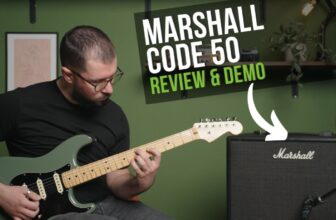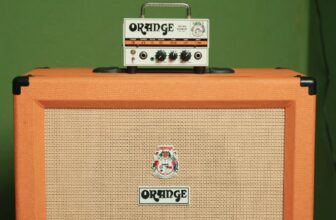Can Loud Music Damage Speakers and Headphones?

Loud music can damage speakers or headphones. This is a more common problem with speakers, but it’s also possible to damage headphones. The failure mode may differ from one case to another, but the end result will be the same: a pair of speakers or headphones that’s as useful as a brick.
Contents
Can Loud Music Damage Speakers?
Here’s how loud music may damage your speaker’s components:
Loud Music Can Cause Excess Heat in the Drivers That Can Burn the Driver Coils
Playing loud music produces more heat in the speakers’ drivers, causing permanent damage to the driver coils. The good news is that you can avoid this by checking your speakers’ power rating.
All speakers come with a power rating that you can think of as a threshold that you shouldn’t surpass. Keeping the volume at safe levels that don’t exceed the speakers’ power rating will preserve their condition for way longer.
The driver has a conductive coil through which audio signals pass. The changing magnetic field that the coil is suspended in and the speaker cone control its movement. When you turn up the volume, more heat is produced due to the changing magnetic field, which may eventually lead to the coil burning out. This is what we can call “demagnetization”.
It Can Cause Mechanical Failure of the Driver Suspension
Although rare, mechanical damage could happen to your speakers when the volume is too loud.
There are 2 thresholds for mechanical movements in a speaker’s driver: maximum linear movement and maximum mechanical movement. The former is the top limit of the voice coil’s movement outside of the magnetic gap, while the latter is the threshold that hinders the speaker’s ability to move.
Exceeding these thresholds can cause the driver suspension to fail.
Playing in Max Volume Can Crack the Speakers
High volumes may blow out your speakers, but you can avoid this by keeping the volume level in check. One way to tell whether the music is too loud or not is to check if you can hear significant distortion. If there’s little to no distortion, you’re on the safe side.
Tips to Maintain Your Speakers
- Get powered speakers to know the power rating
- Make sure that the amplifier and the speakers are matched properly
- If you use an amplifier, it’d be best if it had a safety fuse to protect the speakers when the volume turns up too high unexpectedly
- Turn down the volume or turn off the speaker completely when you start hearing unusual distortion
Can Loud Music Damage Headphones?
Loud music can definitely damage your headphones. Depending on the extent of the damage, your headphones may either turn completely silent if the driver coil is fried or sound a bit distorted at medium-high volumes in case of transducer damage.
There’s one thing to keep in mind, though: damaging your headphones with loud music is pretty hard. The reason is that by the time the music is loud enough for it to damage your headphones, your ears would already be permanently damaged. If the music is too loud for you, you’ll probably turn down the volume, and hopefully, neither your ears nor your headphones will be damaged.
Of course, if you just take off the headphones and leave the music on at a very high volume, your headphones will probably stop working.
How Can You Tell if a Speaker Is Damaged?
You can easily tell if a speaker is damaged by tapping on its cone. If you hear a firm drum-like sound, then the speaker is intact. On the other hand, a rattling sound means that your speaker is blown out.
Another way to test your speakers is to play a bass-heavy song. If the bass doesn’t sound right, it’s time to get a new speaker set. A burning smell or smoke is another obvious sign, too.
Can You Fix Blown Speakers?
It’s technically possible to repair a set of blown out speakers. However, it may not be worth the time and effort since the repair cost will likely be the same as just getting a brand new set of speakers.
Summary
In short, listening to loud music on speakers or headphones isn’t really recommended, at least if you want your gadgets to last. Of course, it’s easier to damage a set of speakers than headphones since they don’t directly produce sound waves into your ears.
And remember, loud music isn’t worth damaging your ears or even your speakers for. Keep the loudness well below 85 dB for maximum safety.





